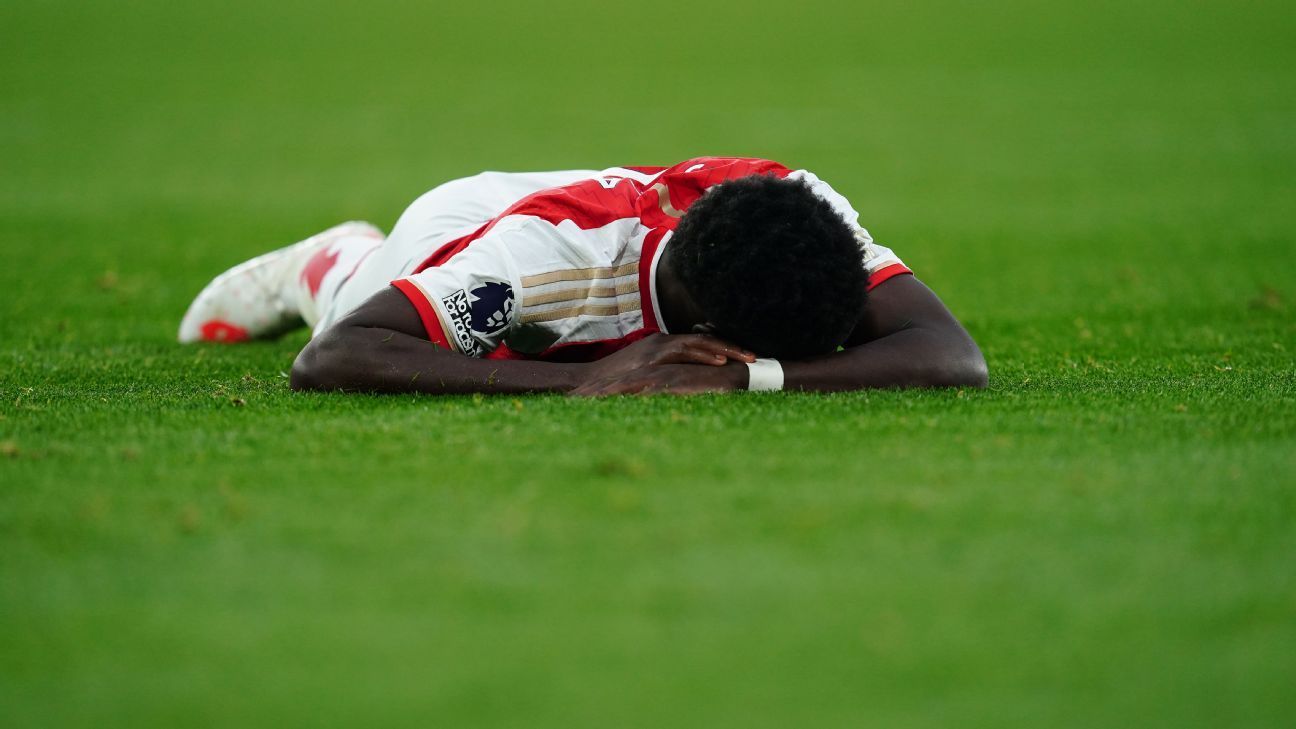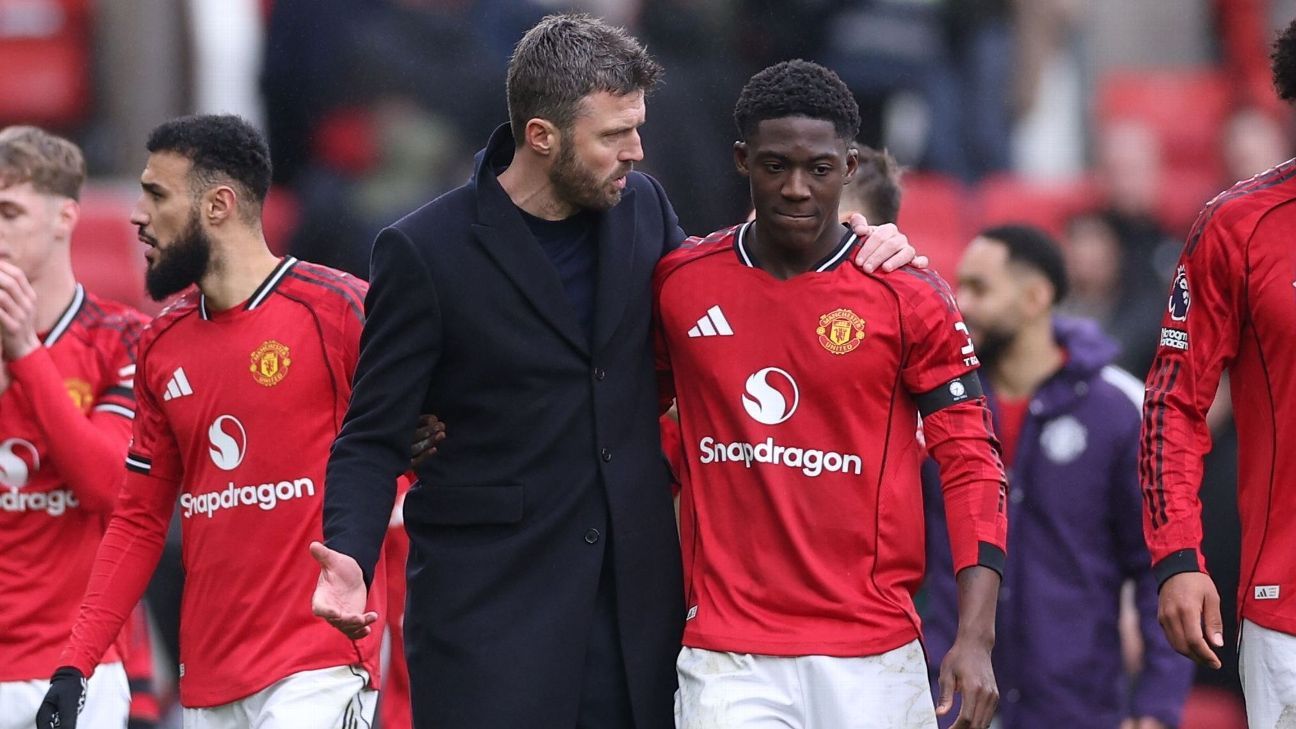Player frustration at playing too many games and not getting enough rest is mounting in football, but how close is the sport to a players' strike?
The issue of burnout has always been a major theme in football, but the expansion of UEFA's club competitions and the new FIFA Club World Cup have put the matter at the top of the agenda.
In August, ESPN reported that this season will be the longest in club history, with the Club World Cup scheduled to take place over a four-week period in the United States in June and July. High-profile players have already spoken out on the matter, with Erling Haaland, Kylian Mbappé and Jude Bellingham voicing their concerns about football's increasingly packed match schedule.
This week, Manchester City midfielder Rodri became the first high-profile player to warn that footballers are prepared to strike. Real Madrid goalkeeper Thibaut Courtois joined Rodri in speaking out about the possibility of players taking unprecedented action. Liverpool goalkeeper Alisson Becker, Barcelona's Jules Koundé and Aston Villa's John McGinn soon followed suit.
Managers such as Pep Guardiola, Mikel Arteta and Jurgen Klopp have also sounded the alarm about burnout. And on Friday, Real Madrid manager Carlo Ancelotti said he believes players would be willing to take a pay cut if it meant playing fewer games.
While strikes have impacted American sports over the years, with baseball, basketball and football all experiencing walkouts or lockouts, football has so far avoided such a drastic scenario.
Why are top footballers now talking about going on strike and what are the chances of this happening?
What is behind the strike threat?
Player workload has been a long-standing issue, with top clubs typically participating in competitions until the final stages and then embarking on long-distance pre-season trips to the United States or Asia. These trips can last two or three weeks and involve several matches.
Top players also have to take into account the international matches and travel that this entails during a season, as well as the major tournaments that take place every two years. It is very easy to play more than 60 matches.
Despite the growing tension, football has managed to manage the situation. Players have been able to enjoy at least the recommended level of rest (usually three to four weeks) between seasons, while every two years there would be a blank space in the international calendar for extended recovery.
But the Club World Cup, which brings to a close one of those summer breaks for a month-long club competition involving 32 teams, could prove the final straw.
FIFA insists that the Club World Cup merely takes up a place on the calendar previously occupied by the Confederations Cup, an international tournament held every four years and organised by the host countries of the next World Cup as a test. This is a misnomer, as the Confederations Cup involved only eight countries, lasted two weeks and did not involve as many players as took part in the gruelling European club season.
Meanwhile, the Club World Cup is a 63-match competition, with the opening match scheduled for June 15, just 15 days after the 2025 Champions League final. In between, there are crucial World Cup qualifying matches and the UEFA Nations League finals, which will be played around the world from June 4-10.
This is in addition to two additional matches in this season's expanded Champions League league phase.
1:12
Ancelotti wants fewer games to reduce injuries
Real Madrid manager Carlo Ancelotti wants the number of games played to be reduced to protect players from injury.
What measures are players' unions taking?
FIRPRO, the global body representing more than 65,000 footballers around the world, and the players' unions of England, France and Italy filed a lawsuit against FIFA in June to challenge the legality of FIFA's unilateral decision to set the international match calendar and expand the Club World Cup.
FIFPRO noted in its submission that “players and their unions have consistently highlighted the current football calendar as overcrowded and unworkable,” adding that “players and unions view the new FIFA Club World Cup as a turning point.”
Furthermore, FIFPRO stated that “players' unions believe that these decisions by FIFA violate the EU Charter of Fundamental Rights (EUCFR), without any serious justification. Ultimately, players' unions believe that the aim of this new competition is to increase the wealth and power of football's world governing body, without taking into account the impact on the players involved or other stakeholders within professional football.”
The European Leagues, which represent 39 professional leagues in 33 European countries, joined FIFPRO's legal action in July but FIFA responded with accusations of “hypocrisy”.
In a statement, FIFA said: “Some European leagues, which are organisers and regulators of competitions, act out of commercial interests, hypocrisy and without regard for others in the world. These leagues seemingly prefer a calendar full of friendlies and summer tours, often involving extensive travel around the world. Instead, FIFA must protect the overall interests of world football, including the protection of players, everywhere and at all levels of the game.”
What do the players want?
Maheta Molango, chief executive of England's Professional Footballers' Association (PFA), told ESPN in August that he “absolutely could not” rule out a strike by players if their concerns were not addressed. Molango reiterated to ESPN this week that FIFA must “stay alert and take notice.”
Football would obviously grind to a halt without footballers, so players are in a powerful position to drive change – if they have the courage to force it.
FIFPRO and the players' unions want limits to be placed on the number of matches players can play in a season. Molango suggested to ESPN a figure of between 50 and 60, plus a restriction of no more than six occasions on which a player can play two matches in four days. The unions also want summer breaks of three to four weeks to be mandatory, rather than a recommendation.
“Players are talking about it everywhere: in the press conferences before the Champions League, before the Nations League. It's clear that something has changed,” Alexander Bielefeld, FIFPRO's director of global policy and strategic relations for men's football, said on a panel at the World Football Summit this week.
“Players' unions have been working on this issue for over five years. We have raised and communicated players' concerns about this to FIFA. When unions from countries such as England, France, Italy and other markets visit players every pre-season and speak to national team players, the main concern is workload.
“Players need protected rest periods and a limit on matches to be able to perform at their best and protect their careers. It's that simple.”
Club owners, who benefit from the increased financial gain that comes from more matches at high-profile tournaments, have so far remained silent in the face of players' concerns.
1:55
Slot and Alisson's opinion on the congestion of matches in the football calendar
Arne Slot and Alisson give their opinion on the new UEFA Champions League format and the congestion of matches in the football calendar.
Is a strike really feasible?
Here's the reality: there are many hypotheses, but at this stage a strike is not on the agenda and it would be difficult for the players to reach an agreement.
Sources have told ESPN that the focus of FIFPRO and the players' unions at this stage remains legal action against FIFA, so their energies are being focused on that. If that action is successful (there is no set timeframe for a resolution), a players' strike is unlikely as FIFA would be forced to shelve, modify or reschedule the Club World Cup.
Even if the PFA were to put its 5,000 members to a vote, selling a strike to those players outside the top clubs who are not directly affected would not be straightforward.
Players' unions represent players at all levels of the game, so could they be confident of having a majority in favour? Convincing a critical mass to stand in solidarity with the highest-paid players would take time and a lot of persuasion, hence the priority of the legal case against FIFA.
For example, would an EFL League Two player from Accrington Stanley or Newport County earning around £500 a week with a mortgage to pay and a family to support be willing to withdraw his services and forfeit his wages to support top-flight multi-millionaires in their battle against too many games?
How will all this play out?
That is the big question, but much will depend on the FIFPRO case against FIFA. That is the next important stage.
Players and coaches will continue to raise their concerns, but unless their bosses – the club owners – accept their arguments and join forces to tell FIFA that the game is getting too heated, it is unlikely anything will change any time soon.
A players' strike is a distant possibility at the moment, but every further comment from leading players will serve to keep the issue in the public domain. The reality, however, is that it will be decided behind closed doors. If the legal case goes in FIFA's favour, a players' strike could become a much greater possibility.












